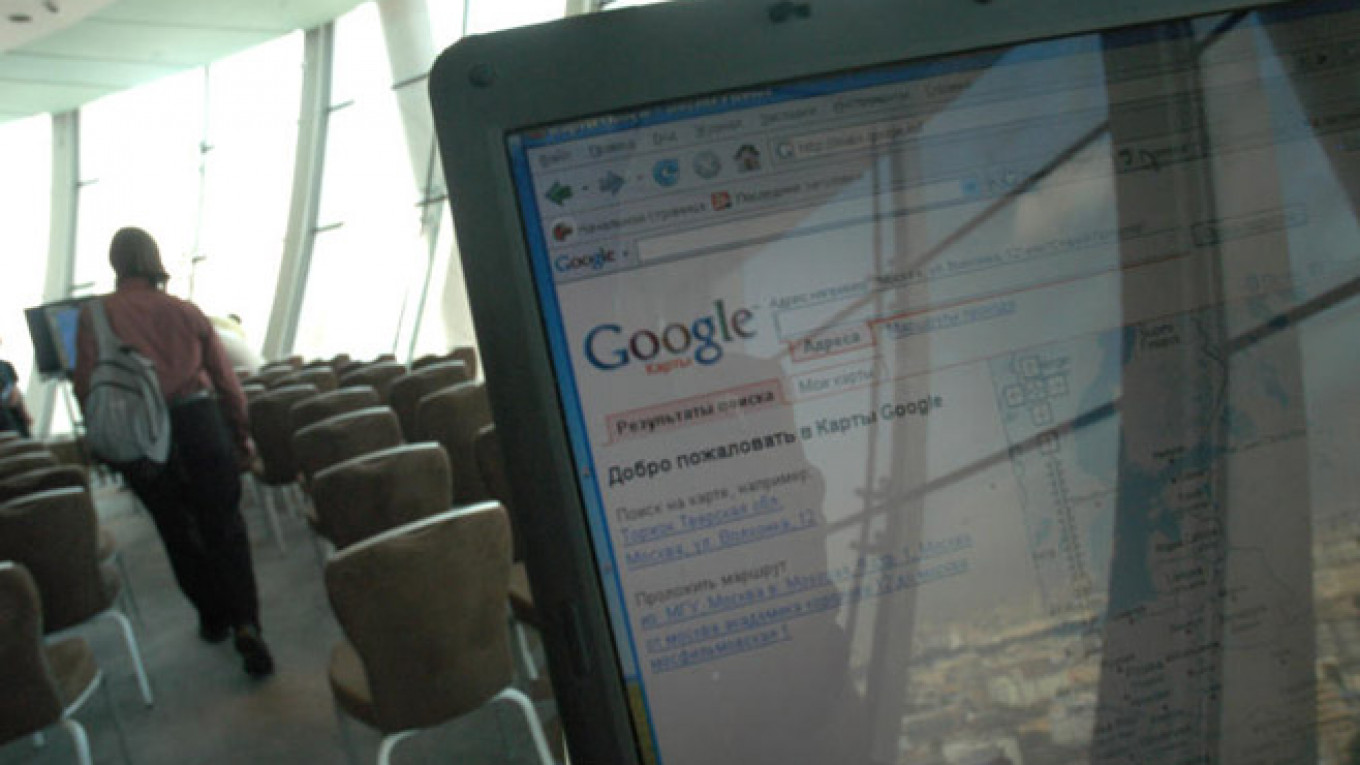A Russian federal lawmaker says Google is anti-Russian and possibly spying for Ukraine, and he wants local authorities to investigate, Izvestia reported Thursday.
Yevgeny Fyodorov of the ruling United Russia party, who previously accused the CIA of writing freedom-loving songs for a Russian rock star, said Google is "within the jurisdiction of the United States, and the official U.S. position is to weaken Russia and destabilize the situation," the report said.
"Therefore, this [position] is a direct instruction for those organizations that are under their control," Fyodorov told the newspaper.
Fyodorov claims that Google signed a deal with the Ukrainian Security Service and could supply that government with information about Russian Internet users, Izvestia reported.
One piece of evidence that Fyodorov cited to demonstrate Google's supposedly malicious intent was the use of its services by Ukrainian protesters during their uprising against the country's previous, Moscow-backed administration.
"When a state coup was taking place in Kiev, the street component was organized and mobilized through social networks, and that is first of all Google," Fyodorov was quoted as saying.
That protesters around the world use online networks to communicate and organize is certainly true, and the issue appears to have been causing unease for some in the Russian government.
Maxim Ksenzov, a deputy of Russia's communications watchdog Roskomnadzor, suggested last spring that his agency could block access to Twitter in Russia, but later said there were no plans to do so.
Fyodorov has also taken issue with at least two Russian rock stars — Andrei Makarevich, who he called a traitor for opposing Russia's policies in Ukraine, and deceased perestroika-era singer Viktor Tsoi, whom Fyodorov accused of using songs written by the CIA.
Contact the author at [email protected]
A Message from The Moscow Times:
Dear readers,
We are facing unprecedented challenges. Russia's Prosecutor General's Office has designated The Moscow Times as an "undesirable" organization, criminalizing our work and putting our staff at risk of prosecution. This follows our earlier unjust labeling as a "foreign agent."
These actions are direct attempts to silence independent journalism in Russia. The authorities claim our work "discredits the decisions of the Russian leadership." We see things differently: we strive to provide accurate, unbiased reporting on Russia.
We, the journalists of The Moscow Times, refuse to be silenced. But to continue our work, we need your help.
Your support, no matter how small, makes a world of difference. If you can, please support us monthly starting from just $2. It's quick to set up, and every contribution makes a significant impact.
By supporting The Moscow Times, you're defending open, independent journalism in the face of repression. Thank you for standing with us.
Remind me later.






